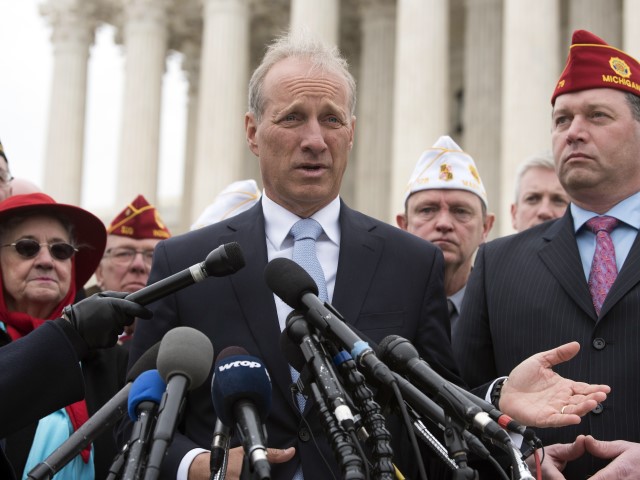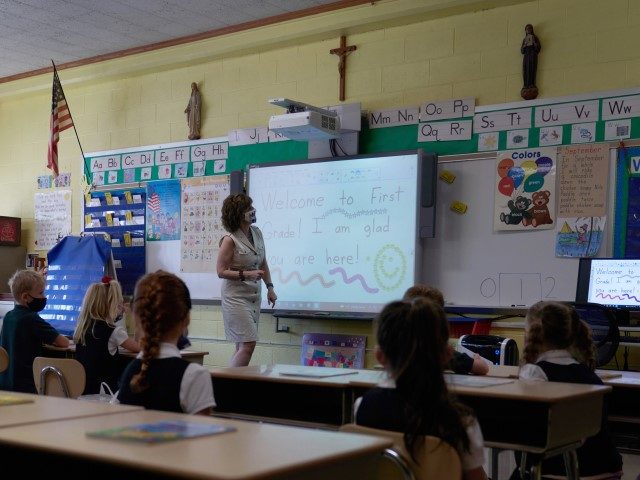In a major win for religious liberty, the Supreme Court sided 6-3 on Tuesday against Maine’s education program, which excludes tuition assistance for students attending religious schools.
The case, Carson v. Makin, is centered around parents who wished to send their children to Christian schools using state aid, only to be banned from the assistance program because the schools teach through a “lens of faith.”
The parents, represented by First Liberty Institute and Institute for Justice, argued that “states should not be permitted to withhold an otherwise available education benefit simply because a student would make the private and independent choice to use that benefit to procure an education that includes religious instruction.” The United States and Pender Makin, commissioner of the Maine Department of Education, contended the state should not have to “subsidize” religious instruction.
Chief Justice John Roberts wrote the majority opinion, declaring Maine’s exclusion of “sectarian” instruction from its tuition assistance program to be unconstitutional. Roberts held that barring parents from directing state funding to a religious school of their choice violates the Free Exercise Clause of the First Amendment, defined as “indirect coercion or penalties on the free exercise of religion, not just outright prohibitions.”
“Maine’s ‘nonsectarian’ requirement for its otherwise generally available tuition assistance payments violates the Free Exercise Clause of the First Amendment,” Roberts wrote. “Regardless of how the benefit and restriction are described, the program operates to identify and exclude otherwise eligible schools on the basis of their religious exercise. The judgment of the Court of Appeals is reversed, and the case is remanded for further proceedings consistent with this opinion.”
The case is the latest installment in an extensive battle over whether a school’s being religious bars it from receiving state funds.
In a 2017 case, Trinity Lutheran Church of Columbia v. Comer, the Supreme Court held that children’s play areas run by religious organizations could not be disqualified from government grant programs on account of religious status. In the 2020 case Espinoza v. Montana Department of Revenue the Supreme Court extended the 2017 ruling to say that religious schools could not be disqualified because of religious status.
The U.S. Court of Appeals for the First Circuit, which sided with Maine, seized on Espinoza’s “use/status distinction” to uphold a religious exclusion in Maine’s tuition assistance program. Chief Justice Roberts rejected the First Circuit’s reasoning, noting the Court held in Espinoza that a “state need not subsidize private education. But once a State decides to do so, it cannot disqualify some private schools solely because they are religious.”
Roberts further pointed to the fact that Maine “decided not to operate schools of its own, but instead to offer tuition assistance that parents may direct to the public or private schools of their choice.”
“Maine’s administration of that benefit is subject to the free exercise principles governing any such public benefit program—including the prohibition on denying the benefit based on a recipient’s religious exercise,” he wrote.
Roberts also added that any effort to scrutinize how a religious school “pursues its educational mission” would “also raise serious concerns about state entanglement with religion and denominational favoritism.”
Justice Stephen Breyer wrote the dissenting opinion, joined by left-leaning Justices Elena Kagan and Sonia Sotomayor. Breyer argued that the First Amendment “sometimes allows a state to further antiestablishment interests by withholding aid from religious institutions without violating the Constitution’s protections for the free exercise of religion.”
Roberts rebutted Breyer’s dissent, writing that while Breyer stresses the importance of “government neutrality” toward religion, “there is nothing neutral about Maine’s program.”
“The State pays tuition for certain students at private schools—so long as the schools are not religious. That is discrimination against religion,” Roberts wrote. “A State’s antiestablishment interest does not justify enactments that exclude some members of the community from an otherwise generally available public benefit because of their religious exercise.”
First Liberty Institute and Institute for Justice celebrated the victory as a win for religious liberty and parents “all over the country.”
“We are thrilled that the Court affirmed once again that religious discrimination will not be tolerated in this country. Parents in Maine, and all over the country, can now choose the best education for their kids without fearing retribution from the government.” @_KShackelford
— First Liberty Institute (@1stLiberty) June 21, 2022
“We are thrilled that the Court affirmed once again that religious discrimination will not be tolerated in this country. Parents in Maine, and all over the country, can now choose the best education for their kids without fearing retribution from the government,” First Liberty Institute President and CEO Kelly Shackelford said.

First Liberty Institute’s President, CEO, and chief counsel Kelly Shackelford speaks at a news conference outside the Supreme Court on Feb. 27, 2019, in Washington. (Kevin Wolf/AP)
Institute for Justice Senior Attorney Michael Bindas, who argued the case in front of the Court, released a statement praising the decision as a win for the constitutional rights of parents.
“Today’s decision makes clear, once and for all, that the government may not bar parents from selecting religious schools within educational choice programs, whether because of their religious affiliation or the religious instruction they provide,” Bindas said. “Parents have a constitutional right to choose such schools for their children, and the Court today held that a state cannot deny them that choice in programs that allow for other private options.”
The case is Carson v. Makin, No. 20-1088 in the Supreme Court of the United States.
Katherine Hamilton is a political reporter for Breitbart News. You can follow her on Twitter.


COMMENTS
Please let us know if you're having issues with commenting.